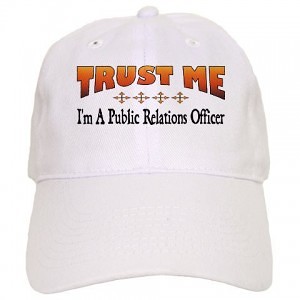 Anyone in public relations knows the recent events of the last several weeks where a restaurateur in the Hamptons incited our entire industry to unite in force to uphold our professional standards. As one of the bloggers who posted a series of articles on this debacle and its fall out (assisted with a guest post by the lovely and talented writer Jenn Whinnem), the theme for me awhile is going to be about public relations.
Anyone in public relations knows the recent events of the last several weeks where a restaurateur in the Hamptons incited our entire industry to unite in force to uphold our professional standards. As one of the bloggers who posted a series of articles on this debacle and its fall out (assisted with a guest post by the lovely and talented writer Jenn Whinnem), the theme for me awhile is going to be about public relations.
I promised to keep it alive because many who commented are counting on me/us for …raderie (my latest coined term). If per chance you’ve moved on with this issue (I can see why one be tired of it), then please be forewarned!
A post I wrote last week What is PR? was intended to help define our ever-changing profession. Prior to the ability to launch into a global, crowdsourcing message mapping session to define public relations, I must first turn to one of our accrediting bodies to hear its definition.
Sadly, the current Public Relations Society of America website adopted a definition of PR in 1982, and it has never changed! (Do you realize this definition below pre-dates the fax machine?) In my post, I called upon PRSA to update the definition (others agreed), and here’s what the highly confusing explanation states:
“Public relations helps an organization and its publics adapt mutually to each other.”
“Organization” is denoted in this context, as opposed to the more limiting “company” or “business,” to stress public relations’ use by businesses, trade unions, government agencies, voluntary associations, foundations, hospitals, schools, colleges, religious groups and other societal institutions.
“Publics” recognizes the need to understand the attitudes and values of — and to develop effective relationships with — many different stakeholders, such as employees, members, customers, local communities, shareholders and other institutions,and with society at large.
In answer to the call for modernity Keith Trivitt, associate director of PRSA, said they were open to suggestions from the field. He also pointed to an excellent jump-start comment by Rosanna M. Fiske, APR, Chair and CEO of the Public Relations Society of America (PRSA).
In response to the New York Times Small Business guest blogger who skewered the entire industry so unabashedly (I am no longer linking to that series of posts), Rosanna eloquently published a newer definition of public relations, and I call upon her to use this as the basis for revising the 30-year-old archaic definition of public relations on the PRSA website:
…publicity/promotion and public relations… The two are not synonymous. Promotional work is not necessarily part of public relations firms’ services, and “buzz” is greatly identified as an advertising and word-of-mouth tactic that found some support through publicity.
Public relations is a profession that has as its base high ethical standards, as set by the Public Relations Society of America’s Code of Ethics (https://ow.ly/41htJ). While we may use elements of persuasion, as do many other disciplines, a core component of those ethical standards is the adherence to the highest standards of accuracy and truth in advancing the interests of those we represent and in communicating with the public. This couldn’t be more important if you’re trying to build long-term credibility and reputation equity for a company.
Watch this space for more input from my peers in public relations. It’s going to take a bit to cull through everything, as at last count I had 43 pages of cut and pasted comments to sort and put into a semblance of a blog. Meanwhile, will you keep giving this some thought and be ready to chime in this week once the series continues?
On a final note as to why I feel compelled to do this…my entire career I’ve felt the need to give back. I have hired interns, recent graduates, and freelancers in my businesses. I teach public relations to anyone who’ll listen, and I’m a guest lecturer on many occasions to students in business courses, and others. My desire is to uphold our profession with high-level standards. When I see, feel and hear the youth of my profession running away from it due the bad reputation we have, it pains me. This is why I’m sticking with it for awhile and we’ll see where it goes. Join me?
(Image: CafePress.com)





